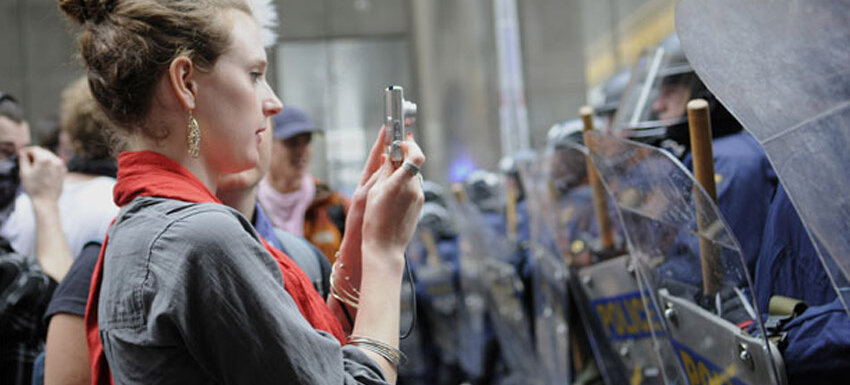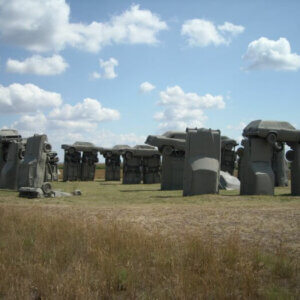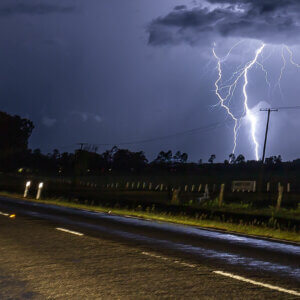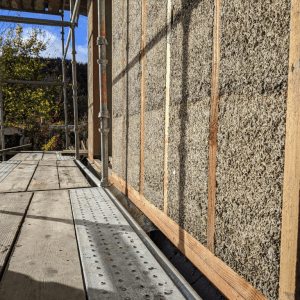While it was always Constitutionally legal to record police officers without their consent, it wasn’t until a May, 2012 ruling by a Federal Appeals Court that it was incontrovertibly legal. That ruling barred the enforcement of a controversial law that allowed for the arrest and prosecution of individuals who made recordings of police officers without their consent. Despite that ruling, however, many police officers remain unaware of (or are hostile to) the fact that recording them is perfectly legal.
That said, if a police officer in a heated, tense situation sees you reaching for something in your pocket, he has no idea if you’re reaching for a phone, or reaching for a gun. You might get tazed. You might get shot. You might yelled at and arrested.
All of those are universally bad outcomes to a given situation, I think.
So, how do you maintain and practice your Constitutional right to record the police without getting arrested, prosecuted, or shot? This 2012 article from Reason.com has a great, highly detailed, 7-step guide to help keep you out of trouble while you record your heavily militarized police force getting into it. I’ve summarized it, below, but highly recommend checking out the full version if you’re headed to Ferguson, MO this week.
7 Rules for Recording Police
Rule No. 1 – Know the Law
Laws in most states plainly allows citizens to record police, as long as you don’t physically interfere with their work. Police might still unfairly harass you, detain you, or confiscate your camera. They might even arrest you for some catchall misdemeanor such as obstruction of justice or disorderly conduct. But you will not be charged for illegally recording police.
Rule No. 2 – Don’t Secretly Record the Police
In most states it’s almost always illegal to record a conversation in which you’re not a party and don’t have consent to record. Massachusetts is the only state to uphold a conviction for recording on-duty police, but that conviction was for a secret recording where the defendant failed to inform police he was recording. (As in the Glik case, Massachusetts courts have ruled that openly recording police is legal, but secretly recording them isn’t.)
Rule No. 3 – Don’t Respond to “Shit Cops Say” w/ Snark
Police aren’t celebrities, so they’re not always used to being photographed in public. So even if you’re recording at a safe distance, they might approach and ask what you are doing. Avoid saying things like “I’m recording you to make sure you’re doing your job right” or “I don’t trust you.” Instead, say something like “Officer, I’m not interfering. I’m asserting my First Amendment rights. You’re being documented and recorded offsite.”
Rule No. 4 – Don’t Share Your Video with Police
If you capture video of police misconduct or brutality, but otherwise avoid being identified yourself, you can anonymously upload it to YouTube. This seems to be the safest legal option.
Rule No. 5 – Be Prepared to Be Arrested
Keene, New Hampshire resident Dave Ridley is the avatar of the new breed of journalist/activist/filmmaker testing the limits of the First Amendment right to record police. Over the past few years he’s uploaded an impressive collection of first-person police encounter videos. With respect to the law, Ridley says, “If you’re rolling the camera, be very open and upfront about it. And look at it as a potential act of civil disobedience for which you could go to jail.” It’s indeed disturbing that citizens who are not breaking the law should have to prepare themselves to be arrested, but this is sage advice.
Rule No. 6 – Master Your Tech
Always set your videos to “Private”, and keep your preferred app easily accessible on your home screen to save precious seconds. With a little bit of practice you should be able to pull your smartphone from your pocket or purse, turn it on, enter your passcode, open the app, and hit record within 10 seconds. That said, don’t try to shave milliseconds off your time by disabling your passcode – if your phone is seized, that will enable unscrupulous individuals to delete your recordings/evidence.
Rule No. 7 – Don’t Point Your Camera Like a Gun
Like, seriously. If you look like you’re pointing a gun at someone, they will very probably shoot you to death. Because ‘Murica.










































Leave a Reply